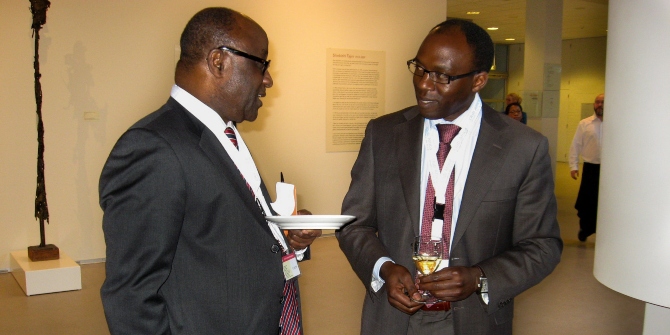
The demand for project managers is growing faster than for other occupational groups, with a 33 percent increase and nearly 22 million new jobs expected in 10 years, according to the report “Project Management Job Growth and Talent Gap 2017–2027”. We are in the era of the project economy, defined as “one in which people have the skills and capabilities they need to turn ideas into reality”.
Although the importance of project management within organisations is increasing, many project managers often experience hampered occupational prospects during their career. This may be linked to some project managers’ professional peculiarities (a “special breed” with unique traits, as well as an “accidental profession”), but several other scholars stressed that career paths and systems within firms are often not adequately developed, resulting in fewer or no career opportunities, ultimately leading project managers to be stuck in a rut.
Assuming that project managers experiencing a successful career can better contribute to their organisations’ success, what are the factors that may foster their career success? It is not so easy to provide an answer: although this profession is assuming increasing importance, it is an under-researched occupational domain in the careers literature. Building on this, our study examined the differential predictive role of organisational and employability enhancement factors, as well as career attitudes, with respect to project managers’ subjective (i.e., career satisfaction) and objective career success. To the best of our knowledge, it was also the first study carried out on Italian project managers.
Project managers usually interact with colleagues both within and outside their company, sometimes managing different projects at the same time. They are requested to be highly autonomous in their choices, and this often relates also to their career given that organisations often lack systems of project allocation and a project manager’s career development depends mainly on the projects managed and related success. Therefore, we selected those variables that, apart from projects’ success, seemed more pertinent to determining project managers’ career success.
Career paths depend on the type of organisation and their projects’ governance systems. A typical career ladder for project managers includes junior project manager, project manager, senior project manager and master project manager or program manager; the last one involving the supervision of more related projects within a program, with the coordination of project managers and the allocation of the budget across multiple projects. These career paths are not always present in project–based organisations, so it often happens that project managers have different alternative job profiles, not being recognised as such.
Employability culture is an organisational factor that relates to employability enhancement as it pertains to the extent employees perceive their organisational culture as fostering employees’ employability through appropriate training and opportunities, activities, programs or initiatives. We also examined individual employability, as the attitudes and behaviours an individual possesses and enacts in order to improve his/her competencies and skills as well as his/her expendability for the organisation.
Lastly, we focused on protean and boundaryless careers. Protean career refers to a proactive attitude involving responsibility for the direction to give to one’s own career through choices based on individual goals and personal values, as an alternative to a more traditional view according to which choices and values of the company are predominant. Instead, boundaryless career refers to physical and psychological mobility across organisational boundaries, and was assessed both objectively (i.e., the amount of work experiences within different organisations) and subjectively (i.e., as the preference for establishing and nurturing social and professional networks both within and outside the current organisation).
We carried out an online survey with 552 Italian project managers, reached with support from three Italian chapters of the Project Management Institute, applying dominance analysis as a main statistical approach. We found that the project managers who are more likely to have greater subjective and objective career success are driven by personal values and feel responsible for their own career development (i.e., protean career). They also work in organisations with clearer paths for career advancement and with a culture encouraging employees’ individual development.
Objective boundaryless careers were related only to objective career success, while other individual factors, such as boundaryless career attitude and employability, unexpectedly were not significant career success’ predictors.
More in detail, we can argue that a project managers’ successful career partly depends on a heterogeneous set of organisational and individual factors. First, project managers need to be more self-reliant and proactive as they manage their career; second, it is important that this takes place in an organisational context which is project management-mature, thus being able to support the peculiar professional growth of project managers by establishing clear career paths. Third, companies need to develop a culture that is perceived as fostering their employees’ employability. In overall, three main practical implications can be drawn:
- whatever the organisational structure type (functional, project oriented, matrix, etc.), project managers’ careers should be designed through clearer paths that enhance their profession and enable clear career growth objectives;
- companies should always encourage project managers to expand their skills and abilities through initiatives that are not just a break from the daily routine but structural and consistent with the wider organisational culture;
- project managers should be encouraged to develop a protean attitude through appropriate training or career counselling; moreover, enacting a protean career should be something feasible by giving the opportunity to share and customise one’s own career path, based on needs, personal values and individual choices, also taking into account the organisation’s strategy and policies.
These implications can provide organisations with the opportunity to have more valuable and satisfied project managers and, plausibly, higher project success rate, the last two points can be disruptive: rethinking careers and how to manage them. Are companies ready to accept the challenge?
♣♣♣
Notes:
- This blog post is based on Is the Project Manager’s Road to Success Paved Only with Clear Career Paths?: A Dominance Analysis of the Additive Contributions of Career Attitudes and Employability Factors, Project Management Journal.
- expresses the views of its author(s), not the position of LSE Business Review or the London School of Economics.
- Featured image by Kaleidico on Unsplash
- When you leave a comment, you’re agreeing to our Comment Policy
 Alessandro Lo Presti is associate professor of work and organisational psychology at the University of Campania “Luigi Vanvitelli” (Italy). He studies career attitudes and success, employability, job insecurity, work-life balance, well-being at work. He currently coordinates the “Work and Organizational Quality of Life” research group and is past-coordinator of the “Employability and Career Development” research group.
Alessandro Lo Presti is associate professor of work and organisational psychology at the University of Campania “Luigi Vanvitelli” (Italy). He studies career attitudes and success, employability, job insecurity, work-life balance, well-being at work. He currently coordinates the “Work and Organizational Quality of Life” research group and is past-coordinator of the “Employability and Career Development” research group.
 Angelo Elia is a professional who has worked for important ICT companies in the banking industry. He currently is a program manager coordinating projects related to replacement and integration of information systems, enhancements in services and evolutions for digital transformation. He is a member of PMI – Project Management Institute – and has been board director of PMI Southern Italy Chapter for four years.
Angelo Elia is a professional who has worked for important ICT companies in the banking industry. He currently is a program manager coordinating projects related to replacement and integration of information systems, enhancements in services and evolutions for digital transformation. He is a member of PMI – Project Management Institute – and has been board director of PMI Southern Italy Chapter for four years.





